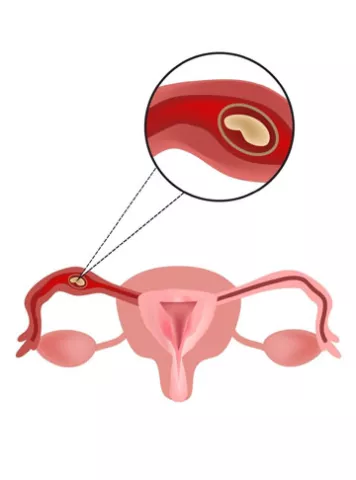Blood pressure problems are no longer just an old-age problem. It is steadily impacting even the young today and causing multiple health issues. But why should you worry about it?
While hypertension itself is a concerning health condition, it can also induce other problems like infertility. Today, at the event of World Hypertension Day, read our interesting article about high blood pressure problems, their impact on fertility and pregnancy and ways to tackle them.
What is Hypertension?
World Hypertension Day 2023 is mainly celebrated to increase awareness about blood pressure problems. Hypertension is nothing but high blood pressure. It is a condition where the blood pumped by the heart exerts excess pressure on the muscular walls of the arteries (blood vessels).
Our heart works continuously to supply oxygen-rich blood to different parts of our body. During this pumping process, the blood flow exerts some amount of pressure on the artery walls. 120/80 mmHg is widely accepted as the normal range of blood pressure. But if the force of the blood increases, that is, if the blood pressure rises, it will result in hypertension.
[Blood pressure is read as systolic BP/ diastolic BP. Systolic BP is the pressure when the blood is pumped out by the heart and diastolic pressure is when the blood is drawn back to the heart.]
Hypertension is a critical medical condition that can lead to multiple problems including headaches, chest pain, stroke, kidney disorders, heart attack, vision-related issues, etc. But that’s not all. Hypertension can also harm your fertility. Let us understand this in detail.
Hypertension and Infertility
Nowadays, many young men and women also suffer from hypertension. Hypertension can affect one’s reproductive health, so it has added to the long list of causes of infertility in both men and women.
High blood pressure can disrupt the hormonal balance in one’s body. Also, it can hinder blood supply to the male or female reproductive organs by affecting the vessels there. In men, the primary damage occurs in the testicular vein, whereas in the female the ovarian vein is damaged.
Male infertility problems caused by hypertension include –
- Low sperm count
- Reduced sperm motility
- Erectile Dysfunction
- Abnormal sperm morphology
- Deceased semen volume
Female infertility issues induced by hypertension include –
- Poor egg quality
- Irregular ovulation
- High estrogen production
- Implantation issues
Sometimes, hypertension may not be a direct cause of female infertility, but a trigger to problems like insulin resistance, high BMI, etc. All these will affect the egg quality adversely.
Impact of Anti-hypertensive Medications on Fertility Health
Some medicines used for controlling high blood pressure can have a side effect on your reproductive health. For instance, beta-blockers used in certain anti-hypertensive tablets can reduce the amount of blood supplied to the uterus and damage the vessels.
You can find a solution to this problem by taking medicines that do not interfere with your chances of conceiving. People already suffering from infertility issues, or having any other sexual health disorder should disclose this information to their healthcare provider before getting any anti-hypertensive drugs prescribed.
Hypertension-induced Infertility - Who is at more risk?
Studies have shown that females are at a higher risk of suffering from infertility issues if they have hypertension. The risk of hypertension and subsequent problems in conceiving can also occur due to advanced age and poor lifestyle habits like smoking.
If you are struggling to enter parenthood and have hypertension problems, you must see an infertility specialist for advice. Treating hypertension alone may not help you, as certain anti-hypertensive medications can further lower your fertility. Speak to your doctor about what is the best way of managing your blood pressure without decreasing your chances of starting a family.
Hypertension in Pregnancy
Though hypertension may affect your fertility rate, you can still get pregnant naturally or through the help of Assisted Reproductive Technology treatment procedures. We will discuss them in detail later in the article.
Lower BP in pregnancy is considered normal. High BP during pregnancy can harm maternal health as well as foetal health. It can cause several complications such as –
- Pre-term birth
- Placental abruption (the placenta getting separated from the uterine lining)
- Preeclampsia (problems in the kidney and liver due to high B.P. after the 20th week of pregnancy)
- Eclampsia
- Intrauterine growth restriction
- Other pregnancy disorders
If you suffer from hypertension or pregnancy-induced hypertension, then you must consult a healthcare specialist. You must also check with your doctor about the components and dosage of the medications so that you can manage hypertension during pregnancy.
Types, Causes and Treatment Options of Hypertension
Generally, hypertension can be classified into two types:
1. Primary Hypertension –
This condition develops as a person ages and is the most common type of blood pressure problem.
2. Secondary Hypertension –
Secondary hypertension is when the blood pressure rises due to another underlying health issue.
Based on the blood pressure reading, your condition can be classified as:
1. Normal Blood Pressure –
Normal bp in pregnancy is when your B.P. reading is 120/80 mmHg or lower but more than 90/60 mmHg.
2. Elevated Blood Pressure –
When the systolic pressure is between 120 mmHg to 129 mmHg and the diastolic pressure is less than or equal to 80 mmHg.
3. Stage 1 Hypertension –
When systolic pressure ranges from 120 mmHg to 139 mmHg or the diastolic pressure varies between 80 mmHg to 89 mmHg.
4. Stage 2 Hypertension –
When the systolic pressure and diastolic pressure are higher than 140 mmHg or 90 mmHg respectively.
Hypertension in pregnancy is seen in many women. Types of pregnancy induced hypertension include –
1. Chronic Hypertension –
High blood pressure either before pregnancy or during the first 5 months (20 weeks of pregnancy).
2. Chronic Hypertension along with superimposed preeclampsia –
In this type, women with chronic hypertension develop worsening high BP and protein in the urine or other complications.
3. Gestational Hypertension –
Here, high blood pressure problem is experienced after 20 weeks of pregnancy. If not managed effectively, it can lead to preeclampsia.
4. Preeclampsia –
Preeclampsia is an increase in blood pressure after 20 weeks. This is more severe than gestational hypertension as organs like the brain, liver, or kidney can get damaged.
Causes of Gestational Hypertension:
- Obesity
- Poor intake of fruits and vegetables
- Excessive consumption of salt or caffeine
- Lifestyle habits like smoking, drinking, etc.
- Age
- Stress
- No exercising
- Genetics, etc.
Gestational Hypertension Symptoms:
- Constant nausea or vomiting
- Trouble in vision
- Abnormal liver and kidney test reports
- Problems in urinating
- Pain in the abdomen
Pregnancy-induced Hypertension Treatment
General treatment for managing hypertension includes taking the correct medication, following a proper diet, exercising, managing your stress effectively, and constantly monitoring any blood pressure fluctuations. Pregnancy induced hypertension can get better after childbirth.
But, for hypertension-induced infertility, you may need the help of specialised ART procedures. Hypertension in pregnancy treatment has to be carefully dealt with so that it does not affect the outcome of fertility procedures. Indira IVF has 150+ treatment centres pan-India that are equipped with world-class technology, expert fertility doctors, and standardised clinical practices.
How Indira IVF can help?
Successful pregnancy with high blood pressure is possible with timely care. Indira IVF uses high-end clinical equipment along with and Machine Learning technology to treat its patients. We have completed 1,60,000+ IVF pregnancies so far and have a high success rate. From infertility testing to advanced ART procedures like IVF (In Vitro Fertilisation), ICSI (Intracytoplasmic Sperm Injection), IUI (Intrauterine Insemination), etc. Indira IVF provides different fertility treatment options under one roof. In addition to this, to cater to the specific needs of infertile couples we also have LAH (Laser Assisted Hatching), Blastocyst Culture, and Pre-Implantation Genetic Testing programmes available. And, the best part is that all fertility programmes are affordable and come with easy zero-cost EMI options.
So, what are you waiting for? Don’t let hypertension be a roadblock in your parenthood journey. Consult our fertility experts today. Call: 18003092323 to get started.
Articles
2023


Guide to infertility treatments IVF
एक्टोपिक प्रेगनेंसी के लक्षण, कारण और इलाज
प्रेगनेंसी की खबर महिला को का�...
2023


Guide to infertility treatments
Managing Pregnancy, Infertility, and Career with Confidence
Before we start, let us ask you a question! What are your fondest Mother’s D...
2023


Male Infertility Guide to infertility treatments
अशुक्राणुता (एजुस्पर्मिया) के कारण, लक्षण और उपचार (Azoospermia in Hindi)
माता-पिता बनने से महरूम रहना भ...
2023


IVF Guide to infertility treatments
टेस्ट ट्यूब बेबी का खर्च कितना आता है (What is the test tube baby cost in hindi)
पिछले कुछ वर्षों में टेस्ट ट्�...


Guide to infertility treatments Infertility Tips
पीआईडी: पेल्विक इनफ्लैमेटरी डिजीज और निःसंतानता
पीआईडी - पेल्विक इनफ्लैमेटरी �...
2022


Guide to infertility treatments IVF
थाइरायड असंतुलन के कारण हो सकती है निःसंतानता, आईवीएफ से कैसे हो सकता है।
पिछले कुछ वर्षों में थायराइड �...


IVF Guide to infertility treatments
भारत में आईवीएफ ट्रीटमेंट में कितना खर्चा होता है
पिछले कुछ वर्षों में टेस्ट ट्�...


Guide to infertility treatments
What is Varicocelectomy? Varicocelectomy is a surgical procedure performed ...
Pregnancy Calculator Tools for Confident and Stress-Free Pregnancy Planning
Get quick understanding of your fertility cycle and accordingly make a schedule to track it














